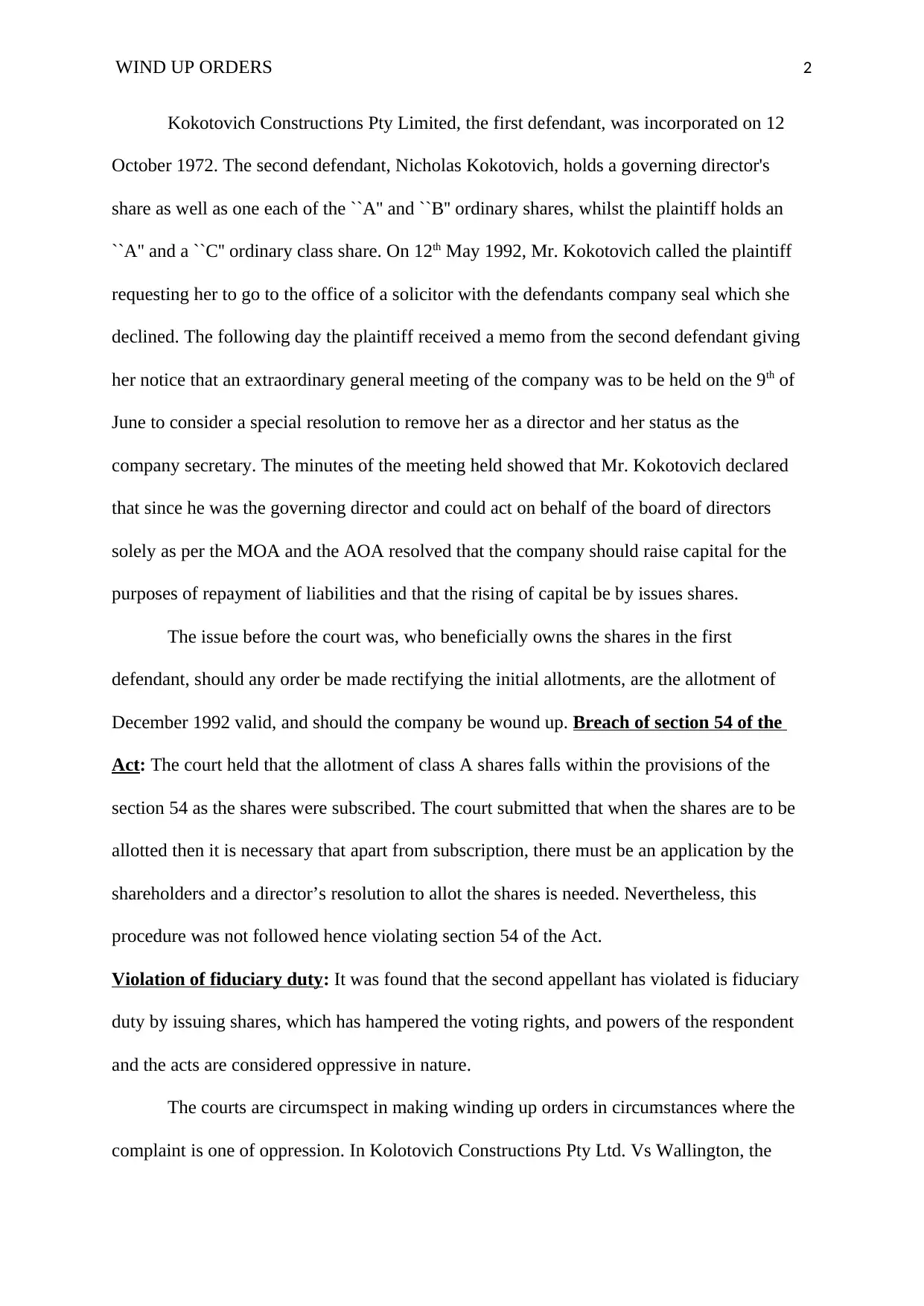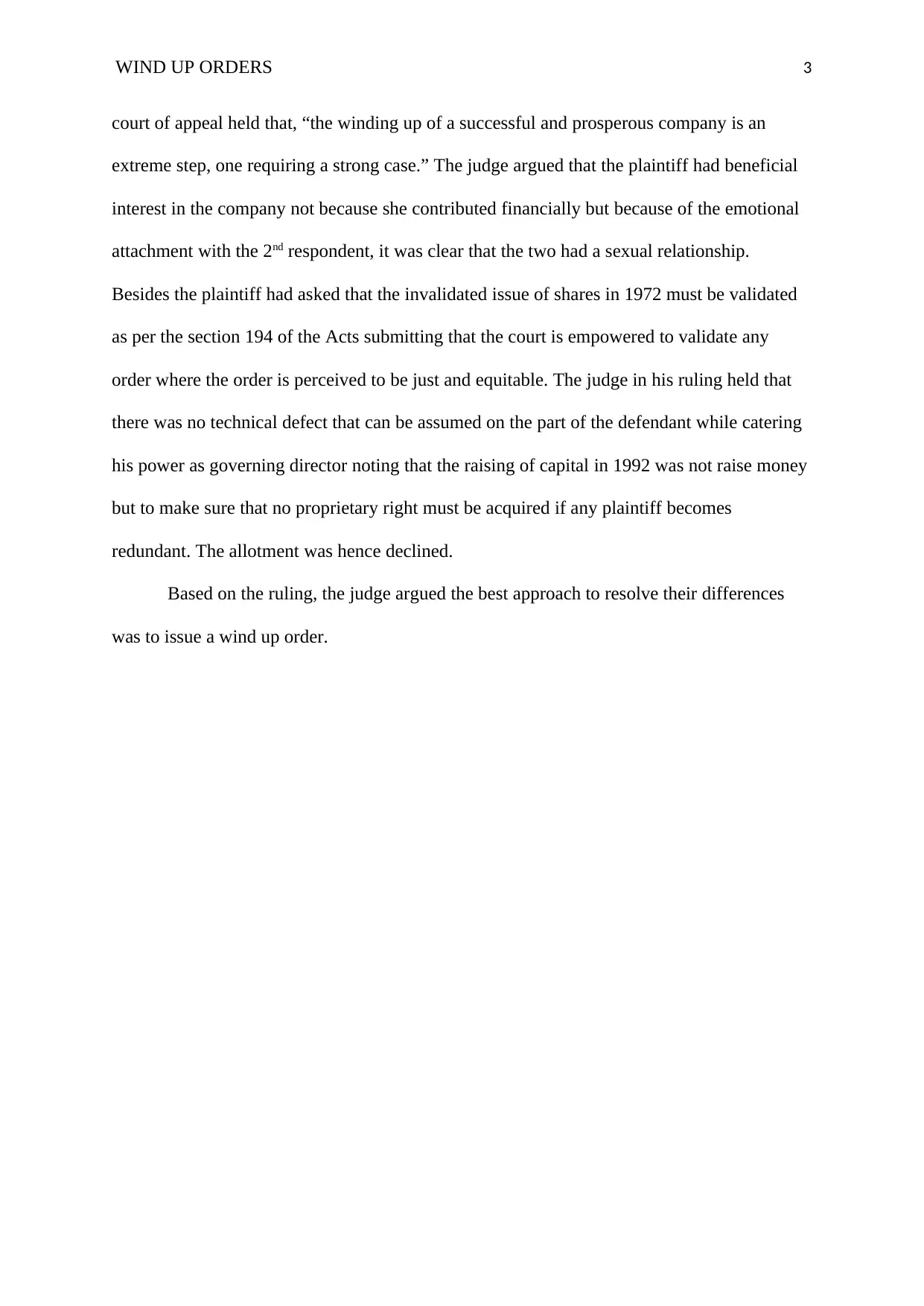Kokotovich Constructions Pty Ltd v Wallington (1995) Case Analysis
VerifiedAdded on 2023/06/11
|3
|626
|462
Case Study
AI Summary
This case study examines the Kokotovich Constructions Pty Ltd v Wallington (1995) case, focusing on a dispute between Mrs. Wallington and Mr. Kokotovich. The central issue revolves around whether the company should be wound up due to breaches of fiduciary duty and section 54 of the Act. The court considered the validity of share allotments, the beneficial ownership of shares, and whether Mr. Kokotovich, as the governing director, acted appropriately. The analysis covers the court's findings regarding the violation of fiduciary duty through the issuance of shares that hampered the respondent's voting rights, deeming such actions oppressive. Ultimately, the judge declined to validate the share allotment and suggested a wind up order as the best approach to resolve the deep-seated differences between the parties. Desklib offers more case studies and learning resources for students.
1 out of 3








![Case Study Analysis: Pure Nature Sydney Pty Ltd [2018] NSWSC 914](/_next/image/?url=https%3A%2F%2Fdesklib.com%2Fmedia%2Fimages%2Fft%2F774f15a31ea24760bdd22a18ac9048e5.jpg&w=256&q=75)
![Business Law Case Study on Pure Nature Sydney Pty Ltd [NSWSC 914]](/_next/image/?url=https%3A%2F%2Fdesklib.com%2Fmedia%2Fimages%2Fzz%2F427abd4eebc344ee9f711d4d4244e03b.jpg&w=256&q=75)
![[object Object]](/_next/static/media/star-bottom.7253800d.svg)